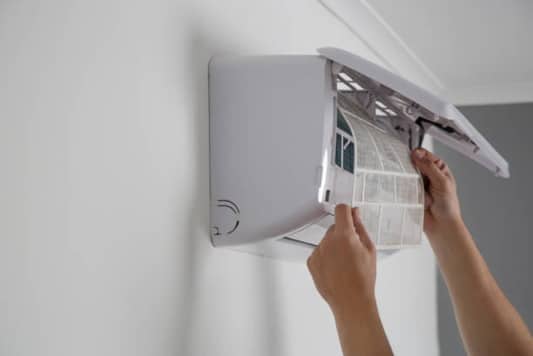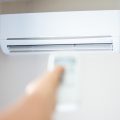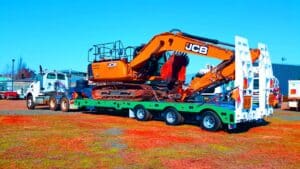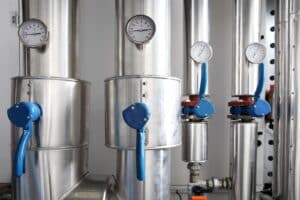Choosing an air conditioning system is a significant investment in your comfort and home efficiency. Among the many brands available, Fujitsu stands out as a reliable, feature-rich option that appeals to homeowners across Australia.
Whether you are buying your first unit or upgrading an existing system, this guide walks you through everything you need to know to make an informed decision in the Central Coast climate.
Why Choose Fujitsu for Your Air Conditioning Needs
A Trusted Brand with Global Recognition
Fujitsu has built a strong reputation globally for manufacturing high-quality, dependable air conditioning systems. Their units are known for durability, intelligent design, and advanced features suited to both residential and commercial settings.
Across the Central Coast, Fujitsu is often chosen for its performance in Australia’s varied and sometimes humid climate.
Innovative Technology and Energy Efficiency
Fujitsu leads in inverter technology, which enables air conditioners to adjust their compressor speed based on the room temperature. This means more precise cooling, less energy use, and quieter operation. Many Fujitsu models have high Energy Star ratings, making them a smart choice for reducing electricity bills while staying comfortable year-round.
Warranty and Support in Australia
Fujitsu offers generous warranties, typically five years for parts and labour when the system is installed by a licensed technician. The brand also has a strong support presence in Australia, with accessible service centres and a responsive customer service team available across the Central Coast.
Understanding the Different Types of Fujitsu Air Conditioners
Split System vs Multi-Split vs Ducted Units
Fujitsu provides several types of air conditioning systems:
- Split Systems: Ideal for cooling or heating individual rooms.
- Multi-Split Systems: Connect several indoor units to one outdoor unit, good for multiple rooms.
- Ducted Systems: Deliver whole-home climate control through ceiling or floor vents, ideal for larger homes or new builds.
Your choice depends on how many rooms need air conditioning and whether you are renovating or building.
Wall-Mounted vs Floor Console Models
Wall-mounted units are popular for their space-saving design and high placement, which allows better air distribution. Floor console units are better suited to properties with limited wall space or where ceiling height restricts installation.
Cooling-Only vs Reverse Cycle (Heating and Cooling)
Reverse cycle units are popular across the Central Coast because they provide both cooling in summer and heating in winter. Cooling-only systems might suit coastal properties where heating is not needed or is managed by a separate system.
How to Choose the Right Fujitsu Unit for Your Home
Factors to Consider – Room Size, Layout, and Insulation
Before selecting a model, consider the room’s size, ceiling height, insulation, number of windows, and sunlight exposure. A well-insulated room with minimal sun exposure may require a smaller unit, while a bright, open-plan space may need a more powerful model.
Choosing the Right Kilowatt Capacity
Fujitsu air conditioners come in a range of sizes from 2.5kW to more than 10kW. Here is a basic guide:
- Bedrooms and small rooms: 2.5kW to 3.5kW
- Medium living areas: 5kW to 6kW
- Large open-plan areas: 7kW to 10kW or more
A licensed installer can help calculate the exact capacity based on your home’s specific needs.
Energy Star Ratings and Efficiency Considerations
Look for high Energy Star ratings when comparing units. Fujitsu’s Lifestyle range offers some of the highest efficiencies available, helping to reduce long-term running costs while keeping your home comfortable.
Comparing Fujitsu Air Conditioner Features
Inverter Technology and Temperature Stability
Fujitsu’s inverter technology helps maintain a consistent temperature and reduces energy waste. Instead of turning on and off repeatedly, the compressor adjusts to keep the room stable, which is ideal for comfort and energy savings.
Air Purification, Humidity Control, and Quiet Modes
Fujitsu air conditioners are equipped with air filtration systems that reduce dust, allergens, and odours. Some models also manage humidity levels, which is particularly helpful during muggy Central Coast summers. Quiet mode features make these units a great fit for bedrooms and study areas.
Smart Wi-Fi Control and App Integration
Many Fujitsu systems, or the likes of Daikin, offer optional Wi-Fi control that allows you to manage the system from your smartphone. You can switch the unit on remotely, change temperature settings, and monitor energy use even when you are not home.
Fujitsu Air Conditioning Installation Tips
Choosing a Licensed Installer
All air conditioning installations in Australia must be carried out by a licensed technician. This ensures the unit is safe, correctly sized, and compliant with local regulations. It also protects your manufacturer warranty.
Understanding Installation Requirements and Costs
Installation costs can vary based on the type of unit, ease of access to walls and electrical wiring, and whether any upgrades to the switchboard are needed. Split systems are typically less expensive to install than ducted systems. Request detailed quotes from Central Coast installers and compare what’s included.
What to Expect During and After Installation
Your installer will mount the indoor and outdoor units, connect the necessary refrigerant and electrical lines, and test the system for performance. After installation, they should walk you through how to use the unit and provide a Certificate of Compliance.
Ongoing Maintenance and System Longevity
Routine Cleaning and Filter Checks
To keep your system running efficiently, clean or replace the air filters every three months. Blocked filters reduce airflow and can increase energy usage. Regular cleaning also helps maintain indoor air quality.
Scheduling Professional Servicing
Have your air conditioner professionally serviced once a year to check refrigerant levels, clean internal parts, and ensure the unit is performing at its best. This is especially important before summer and winter when usage is highest.
Maximising Performance Year-Round
Use features like programmable timers, eco modes, and temperature zoning to control energy use. Keep doors and windows closed while the system is on, and make sure the outdoor unit is free from leaves and debris.
Common Questions Buyers Ask About Fujitsu Air Conditioners
Are Fujitsu Systems Noisy?
Fujitsu units are engineered for quiet performance. Features like quiet mode and sound-dampening materials help reduce operating noise, making them suitable for bedrooms, nurseries, and workspaces.
How Long Does a Fujitsu Unit Typically Last?
With regular maintenance, a Fujitsu air conditioner can last 10 to 15 years or more. Longevity depends on usage, environmental factors, and how well the unit is maintained over time.
What Rebates or Incentives Might Apply?
Occasionally, state governments or energy retailers offer rebates for installing energy-efficient systems. Check with NSW government programs or local Central Coast councils for current offers.
Final Advice for Fujitsu Air Conditioning Buyers
Balancing Budget, Comfort, and Long-Term Value
While Fujitsu systems may not be the cheapest upfront, they often outperform competitors in long-term reliability, efficiency, and smart features. Consider the full cost of ownership including installation, running costs, and servicing when choosing a system.
Where to Buy and What to Look for in a Retailer
Choose an authorised Fujitsu dealer in the Central Coast to ensure genuine products, expert advice, and proper installation. Look for retailers who offer installation bundles, extended warranties, and after-sales support.












